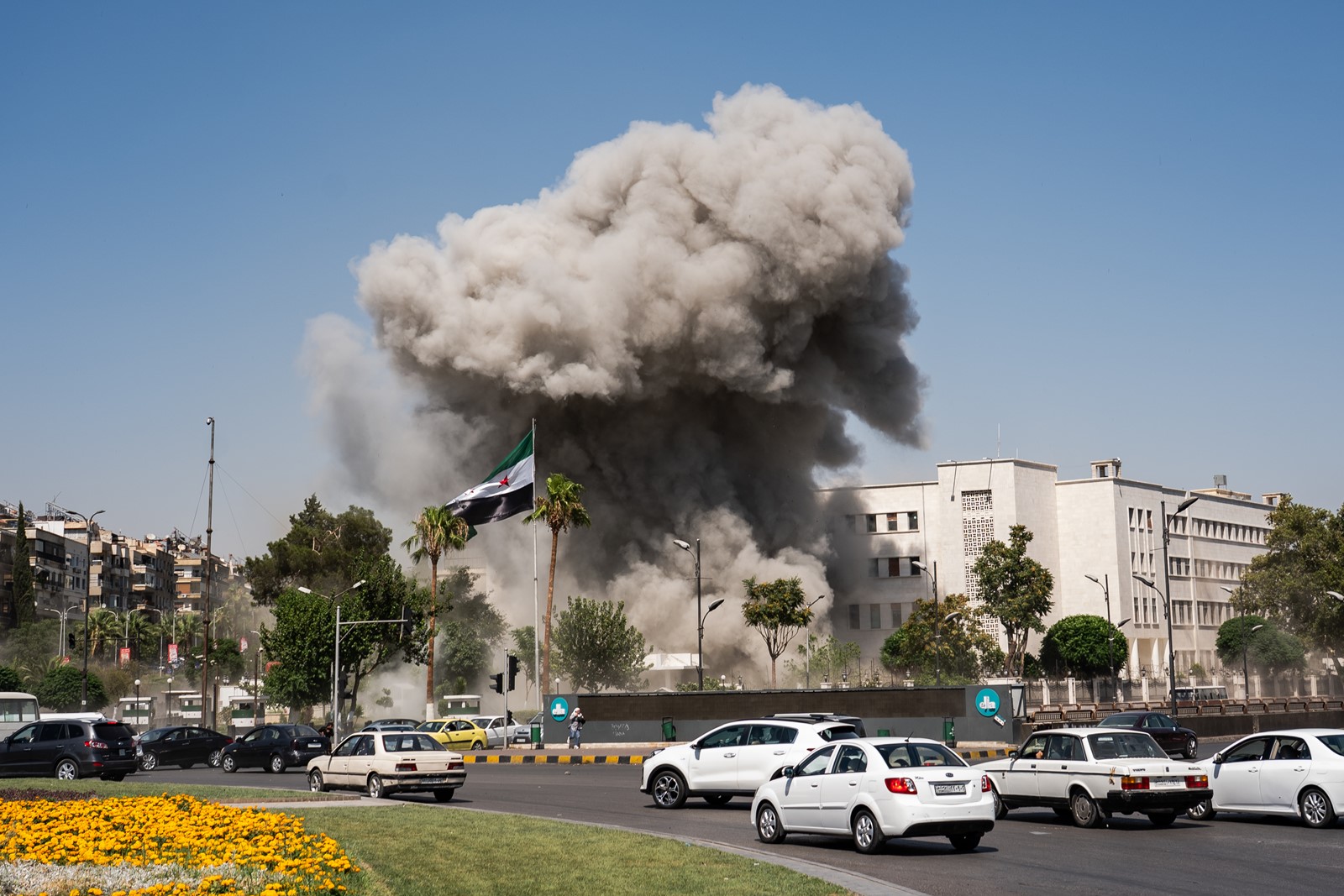
Israel struck Syria’s military headquarters in Damascus on Wednesday and moved more troops to the border area in a bid, officials said, to prevent attacks against the Syrian Druze community.
Israeli forces have stepped up operations in Syria since Monday after deadly fighting between Druze, Bedouin groups and Syrian troops in the southern area of Suwayda. The Syrian Observatory for Human Rights said more than 300 people have been killed in the violence in recent days, with 27 being executed. At least 183 of those killed are members of the Syrian security forces, the SOHR said.
U.S. Secretary of State Marco Rubio said all the parties involved in the clashes have come to an agreement to stop the violence soon. “We have agreed on specific steps that will bring this troubling and horrifying situation to an end tonight,” he said in post on X, without providing details.
Rubio earlier said the US was “very concerned” and “we want it to stop,” though stopped short of calling on Israel to halt its actions.
Syria’s state news agency, Sana, reported Wednesday afternoon that groups in Suwayda had agreed to a ceasefire. However, clashes reignited after the truce, according to SOHR.
There was no immediate comment from Israeli officials on the ceasefire in Syria, and its military said strikes on southern Syria were continuing.
The Israeli attacks on Damascus and Suwayda killed “innocent” people, wounded tens including women and children, and extensively damaged infrastructure and public services, the Syrian foreign ministry said.
Israel has accused the new Syrian government of President Ahmed al-Sharaa of directing fighting against the Druze, a minority group the Jewish state has pledged to protect. Israel also says a build up of Syrian troops near its north-eastern border is a security threat.
Syria’s been devastated by civil war since 2011 and Sharaa, who led an overthrow of Bashar al-Assad’s regime in December, is still trying to gain full control over large swaths of the country and its institutions, including the military. His government said it sent troops into Suwayda to try to end the violence and that it will identify and punish those found responsible. Sharaa has also said he does not want hostile relations with Israel.
While Israel’s strikes and the clashes have been confined to Syria, they are raising regional tensions. The Gulf Cooperation Council, which includes Saudi Arabia, described Israel’s air strikes as an irresponsible escalation likely to further destabilize Syria.
Sana reported at least two explosions in Damascus on Wednesday and drone attacks in Suwayda, as well as strikes on the nearby city of Daraa.
Israeli Defense Minister Israel Katz, speaking before the announcement of the ceasefire in Suwayda, said the military will “continue to attack regime forces until they withdraw” from the governorate.
The Israel Defense Forces said some Israeli Druze were trying to cross into Syria, while other people were attempting the opposite journey.
“We are acting to save our Druze brothers and to eliminate the gangs of the regime,” said Israeli Prime Minister Benjamin Netanyahu.


 PREVIOUS ARTICLE
PREVIOUS ARTICLE
